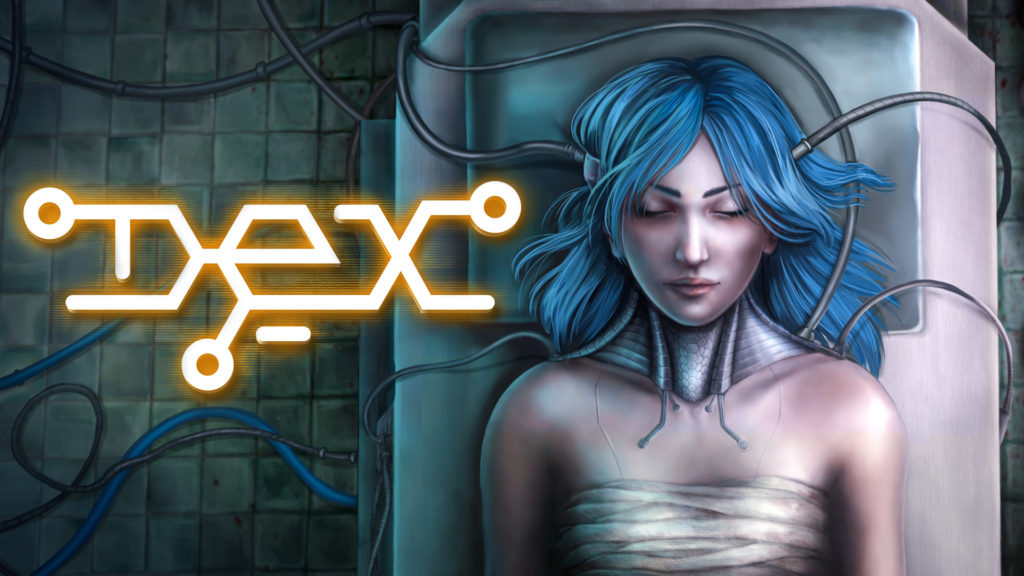
There is Cyberpunk and then there is cyberpunk. With everyone champing at the bit for Cyberpunk 2077, people tend to forget that the cyberpunk genre has been around for quite some time and has had a profound impact on the gaming world in general. The term dates back to 1980s science fiction novels and short stories and became a full genre under authors such as Bruce Sterling, William Gibson, Neal Stephanson and Rudy Rucker. Sure, there are some cool games out there, but real cyberpunk fiction is dark, gritty, and dystopian in a way that hasn’t really been shown in video games, movies, or TV all that often.
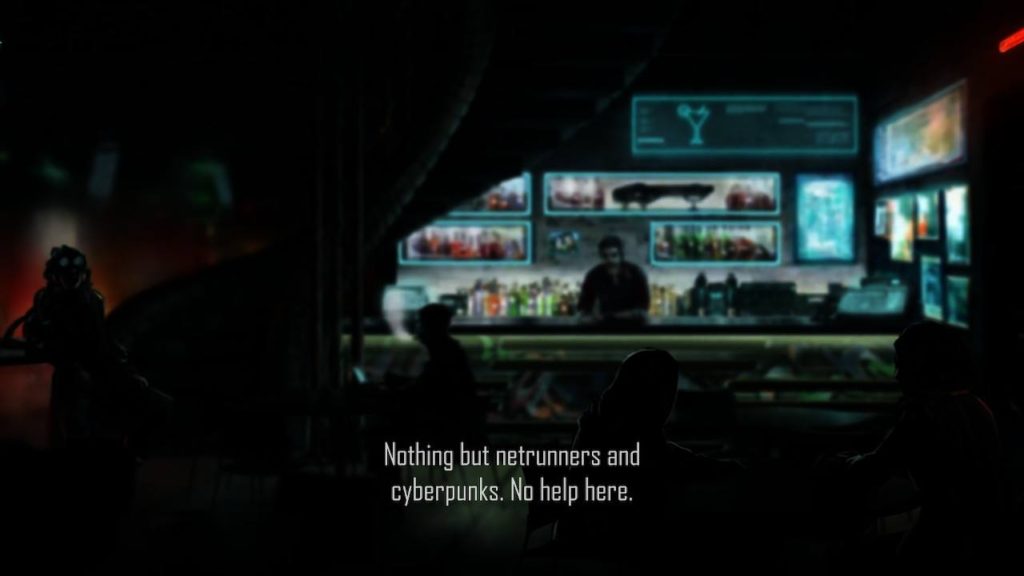
The movie Blade Runner would fall well within the cyberpunk category, for example as would The Matrix and eXistenZ. More recently, the Netflix series Altered Carbon is an excellent example of cyberpunk as well. Not many games have managed to breach the genre though. The Deus Ex franchise might be the most notable, completely adhering to the aesthetic established in the written genre. The Shadowrun franchise is also firmly rooted in cyberpunk, as is the classic Konami game for Sega CD, Snatcher. The System Shock games and Mirror’s Edge also deserve mention. All of these titles share some sort of dystopian future with technology run amok and people surviving in the cracks, taking for granted the miracles of the technology that represses them and maintains their society, while they suffer in pitiful lives with little or no hope.
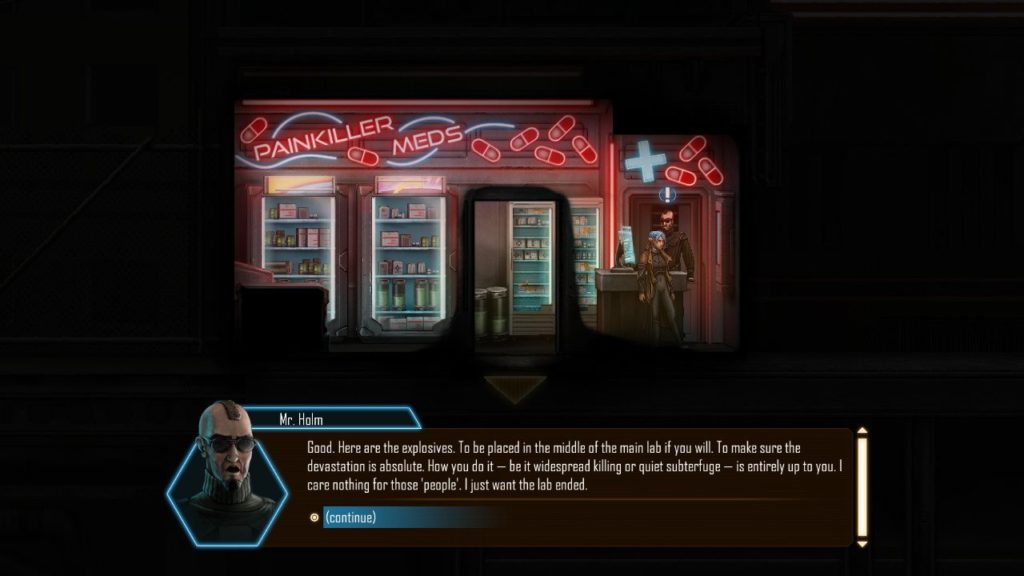 Into this elite cadre of high-concept science fiction slides Dex: Enhanced Version from Czech developer Dreadlocks and published by QubicGames. Dex is a side-scrolling open-world cyberpunk game that manages to distill the essence of the genre into an approachable and nearly mainstream gaming experience. You play Dex, a young girl with blue hair who is suddenly being hunted for no discernible reason. Elite strike teams are suddenly after you and you have to run and run now. Now, damn it! After you get away, which is more challenge than you might think, things kick up a notch as you find out why you’re being hunted and by whom. It would be a shame to ruin the story, as it’s interesting and quite well-done, so we’ll avoid that here, but suffice it to say, Dex has a lot more going on than you might think. She’s not even ‘jacked in’ or anything, so it’s a sudden adjustment for her to adapt to her new circumstances and come to terms with who and what she is. At this point, it should be noted that Dex is unquestionably a Mature audiences game with a number of F-bombs and a surprising amount of adult content and sexual situations. This game is definitely not for all audiences.
Into this elite cadre of high-concept science fiction slides Dex: Enhanced Version from Czech developer Dreadlocks and published by QubicGames. Dex is a side-scrolling open-world cyberpunk game that manages to distill the essence of the genre into an approachable and nearly mainstream gaming experience. You play Dex, a young girl with blue hair who is suddenly being hunted for no discernible reason. Elite strike teams are suddenly after you and you have to run and run now. Now, damn it! After you get away, which is more challenge than you might think, things kick up a notch as you find out why you’re being hunted and by whom. It would be a shame to ruin the story, as it’s interesting and quite well-done, so we’ll avoid that here, but suffice it to say, Dex has a lot more going on than you might think. She’s not even ‘jacked in’ or anything, so it’s a sudden adjustment for her to adapt to her new circumstances and come to terms with who and what she is. At this point, it should be noted that Dex is unquestionably a Mature audiences game with a number of F-bombs and a surprising amount of adult content and sexual situations. This game is definitely not for all audiences.

Dex uses gaming to tell a story that’s far more complex than many narratives you’ll encounter in small indie titles like this one. Not only is there a spectacular amount of dialogue, but it’s all entirely voice acted and quite well done to boot! Every single bit of spoken word is voiced by a surprisingly versatile cast. Some of it is, of course, over the top, but it works in this post-technological environment. Your choices are yours and you can simply talk with whoever you want and go wherever you wish after a certain point in the game. There’s no direction, no handholding, and no explanation of what to do. It’s one of the things that sets Dex apart from other open world games. You have to pay attention. There’s no handy marker telling you where to go. Wander off (and there’s plenty of wandering to be had), hope for the best, and prepare for the worst. Chances are good that you’ll die a lot.
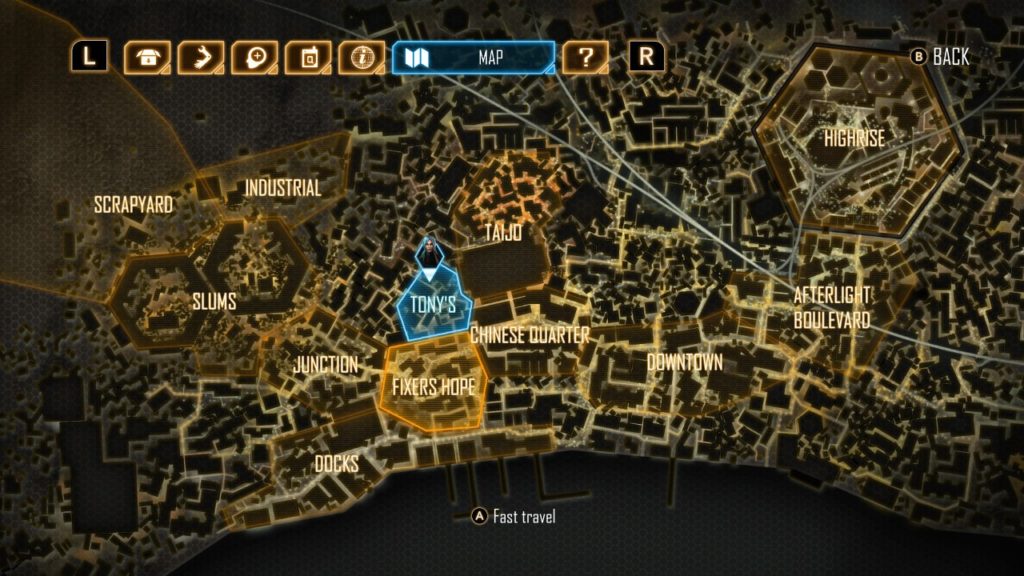
You see, the gameplay in Dex is particularly unforgiving. Even in the introductory sequence, you’re forced to confront a gang of street thugs while running from the killers that are after you. Fighting them is a struggle at best and unsurvivable at worst. In fact, there’s almost no way you’ll manage to kill them all with just your fists and there’s really not much benefit to doing so. Combat is challenging in Dex, and often, you’re forced into melee fighting. Enemies are powerful and the controls are certainly less than you’d expect from a game that has this much direct confrontation. Sure, you’ll get XP and level up from fights, but it’ll cost you in health, money, and ammunition, which you mostly have to buy in small quantities. The hit detection in Dex could definitely use some work, and gun battles are tough too, with targeting taking more time than it should and enemies being fairly resilient. It’s hard to target enemies with a gun and pumping a couple rounds in won’t be enough, especially when they can close on you faster than you can take them down, especially with the weaponry available to you early on. Interestingly, you can actually control the camera distance fairly well, which allows you to either zoom in to the action and make things a bit easier to see, or zoom out and view your combat field, allowing you to strategize. This is a solid addition and does help the combat. It’s available at any time in the game too.
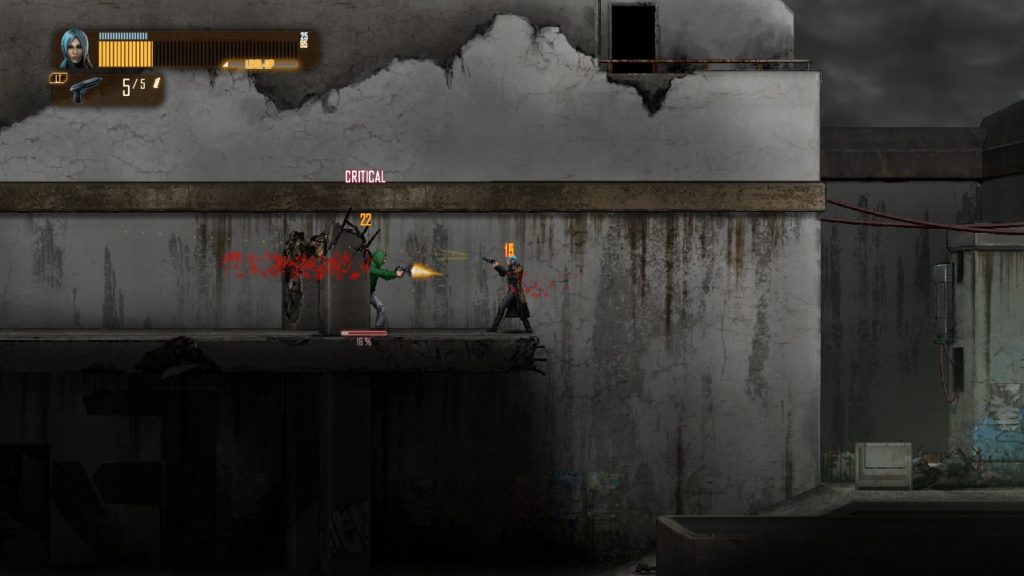
On top of lackluster combat, which is serviceable but not as fun as it could be, there are a variety of platforming elements to Dex. Some odd choices make for slow movement and actions, things like having to jump down from stairs to get to an area in the foreground rather than walking straight over to it, or having to slowly climb down ladders after having to have pressed X to grab onto them rather than simply pressing down. Edges of platforms are incredibly precise and it’s hard to get jumps correct, causing you to run into acid or fall off a precipice. It’s the little things that drag down the action sequences here. The controls in general are less responsive than perhaps they could be, leading to almost annoyingly precise jumps and the inevitable death plummet a fair amount of the time. Fortunately, the game auto loads from the last save point. Oh, you haven’t saved since you entered the area? Uh oh…
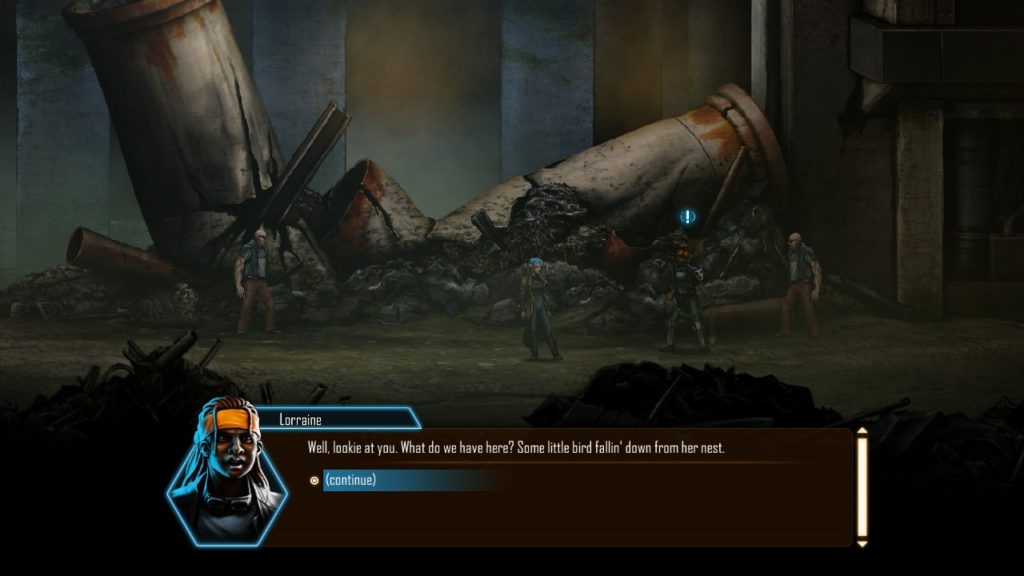 All in all, it’s the platforming and combat that ratchet down an otherwise astonishingly great game. Dex simply oozes charm, both in design and story. Characters are unique and interesting, the side missions are ones you actually want to fulfill, the dialogue is clever and realistic, and the bits of comedy relief slipped in here and there are simply excellent. In short, it’s just an incredibly well-written and well designed game, and we haven’t even gotten to the cool parts yet.
All in all, it’s the platforming and combat that ratchet down an otherwise astonishingly great game. Dex simply oozes charm, both in design and story. Characters are unique and interesting, the side missions are ones you actually want to fulfill, the dialogue is clever and realistic, and the bits of comedy relief slipped in here and there are simply excellent. In short, it’s just an incredibly well-written and well designed game, and we haven’t even gotten to the cool parts yet.
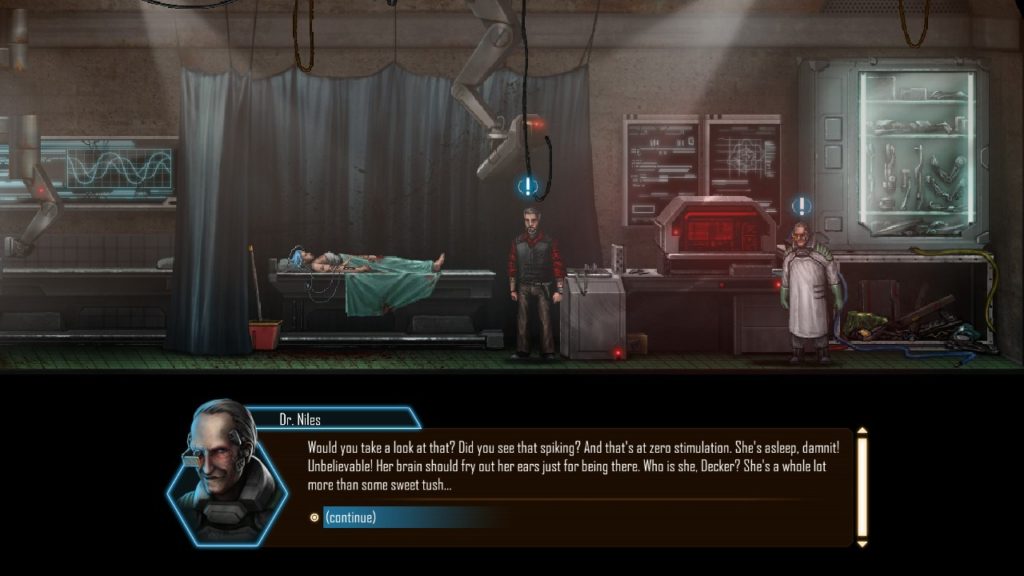
After all, what would a cyberpunk game be without body augmentation? To survive, Dex will have to modify her own body with cybernetic components, some which make her stronger, and others which affect various abilities. In addition, as you level up, you’ll gain skill points in the game’s skill tree which allow you to perform missions in different ways, unlock alternative conversation branches and extra body augments, and a host of other abilities. Between augmentations and skill points, Dex gets powerful fast, morphing into a powerful and interesting heroine. Oh, and she can hack computers too. Not just computers either. You can hack security equipment, cameras, and even enemies if you get the right upgrades. In fact, there’s a whole hacking sub-game and it’s absolutely excellent and quite challenging in its own right.
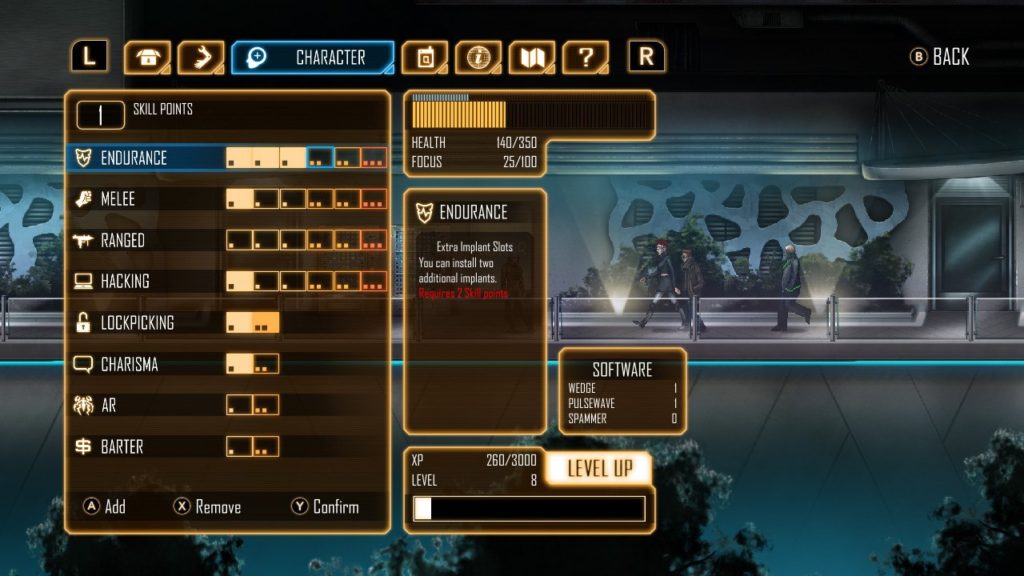
Dex can enter the net through portals and hack systems through a twin stick visual combat subgame. Simply access the web either through a computer portal or by pressing the left thumb stick and away you go. There are two types of hacking, in the real world and in cyberspace. In the real world, you can deactivate cameras and autoturrets and affect enemy combatants. It’s a challenging way to progress in the game and requires certain upgrades to be effective. Viruses and malware attack you as you’re in the virtual world with an underlay into the real world still showing. In cyberspace, you ender a whole different world, and although the mechanics are functionally the same, gameplay is slightly different and more immersive. You’re a sort of sentient program using Focus a computer system from the inside, penetrating its weak points, combating it’s ICE (that’s Intrusion Countermeasure Electronics for the uninitiated) and forcing your way through the firewalls to purloin data and progress. It’s incredibly fun and the only other game that’s got anything even remotely like it is the venerated Shadowrun for the Sega Genesis. There are a couple hitches, especially if you don’t upgrade your Focus enough and you simply don’t have enough juice to get through a mission. Take enough hits and you’re booted from the system and take damage in the real world. You can even die. It’s hard as hell, but excellent as well!
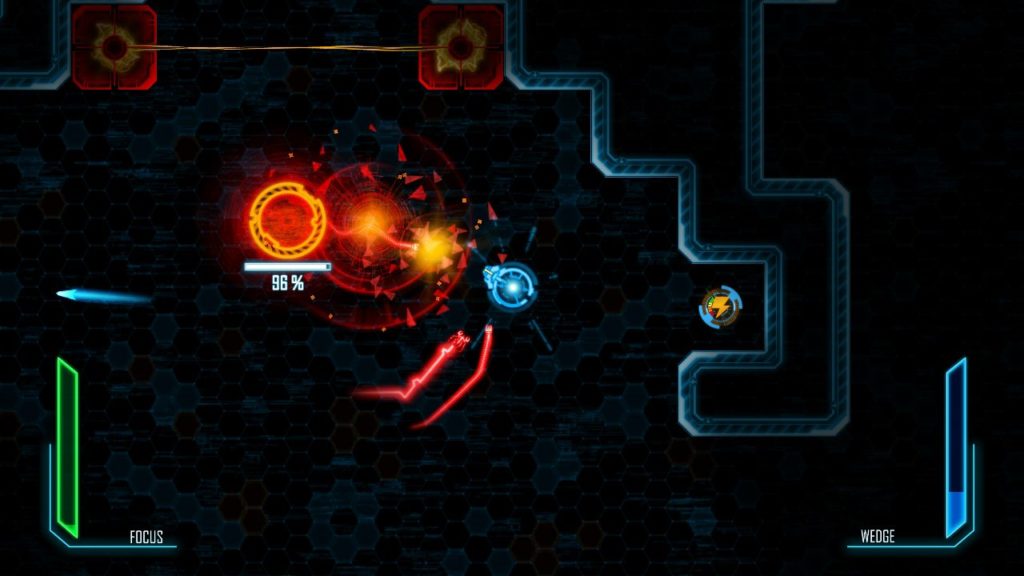
With a solid storyline, a phenomenal hacking sub-game, an excellent art style and great voice work, the only thing that’s really missing from Dex is a better combat system and platforming controls. They’re functional and the game is playable, but there are enough stumbling blocks in the action that things really slow down more than they should and unintentionally lessen the punch of the main game as well. Overall though, Dex is a glorious delve into a fully realized cyberpunk world that feels like it’s ripped straight from the pages of a Gibson novel, and it’s simply a fantastic feeling to be able to play something like that. It’s a solid amount of gameplay too, clocking in at around 10 to 20 hours depending on how deep you want to go and for $20, you’re getting your money’s worth. It works well portably on the Switch too, although the font sizes are quite small even on the largest font size in the options, especially for the undocked Switch screen and might cause a bit of eyestrain for some players. Regardless of its shortfalls, Dex is a simply outstanding example of the potential of cyberpunk games with a well-written narrative and a complex and robust world that simply screams to be explored and exploited! The game’s open style allows for a variety of playstyles and creates an experience that is simply not to be missed. Honestly, if it had come out ten years ago and had slightly better combat, it would have been an instant classic, revered by all! Overlook the hiccups and jack into Dex Enhanced Version. You won’t regret it!
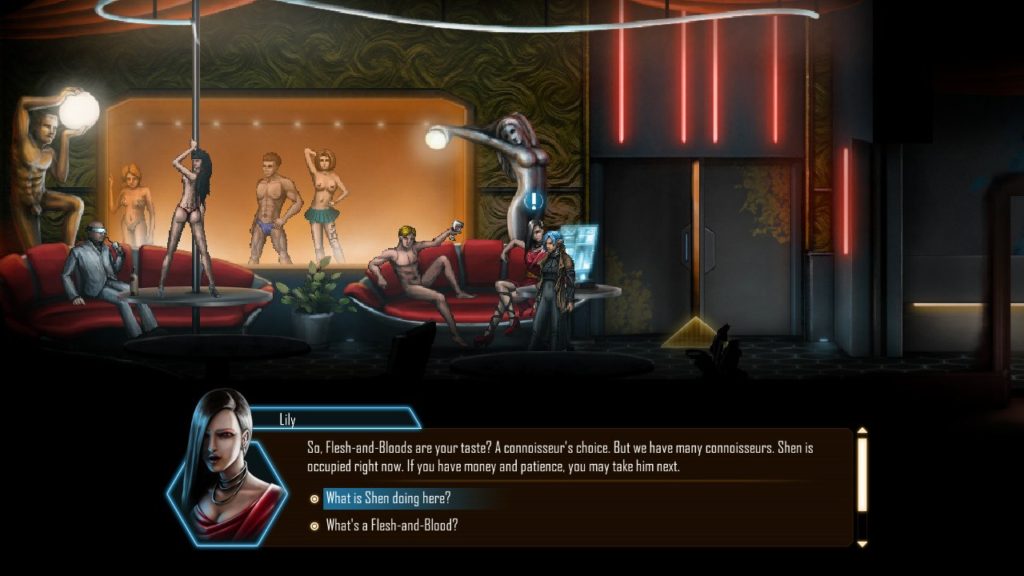
This review was based on a digital copy of Dex: Enhanced Version provided by the publisher. It was played on a Nintendo Switch in both docked and undocked modes and was excellent in both. Dex is also available on the PC for Steam, PS4, Xbox One, and Playstation Vita (although I don’t know how you could see it on that screen…). If you like Dex, you should also try reading some cyberpunk novels or short stories! Notable titles include Neuromancer by William Gibson, Schismatrix by Bruce Sterling, Software by Rudy Rucker, Snow Crash by Neal Stephanson, Vurt by Jeff Noon, and Mirrorshades: The Cyberpunk Anthology (which appears to be out of print now and sadly expensive), edited by Bruce Sterling. While these titles are older, be assured they are still very much on the cutting edge of science fiction even decades after their release!

